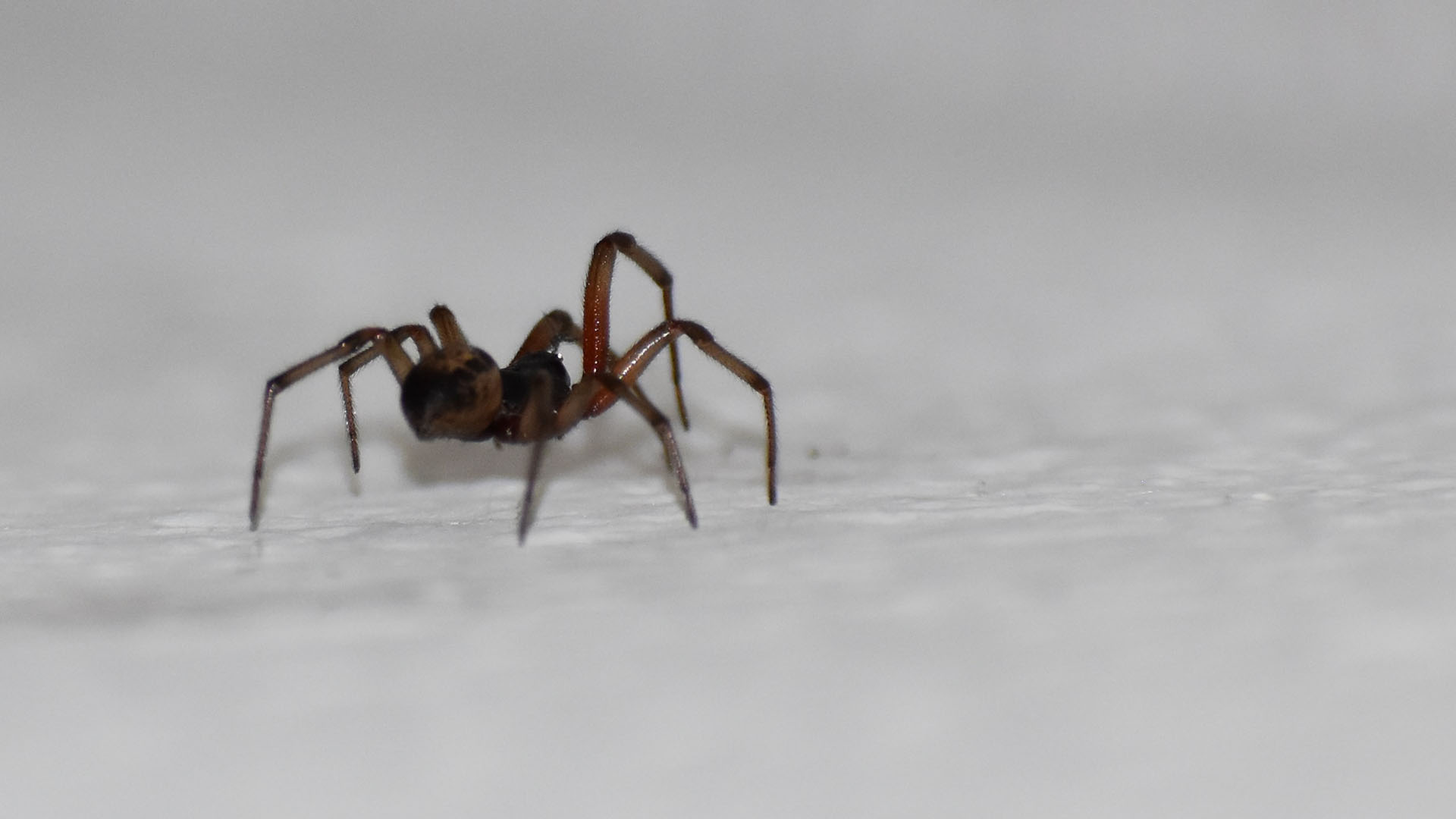Do we really eat 8 spiders a year in our sleep?
We explore if there's any truth in this alarming sleep stat

Close up of a small spider
(Image credit: Elizabeth on Unsplash)We've all heard the statistic that we swallow eight spiders a year in our sleep. If you have a phobia of spiders, you probably had it repeated to you a bunch of times, because that's apparently the kind of thing people find amusing. It's so widely parroted, you'd assume there must be some truth to it, right? Not necessarily. We dug into where this rumor came from, looked at the biology around it, and consulted a science writer, and all evidence points to it being complete rubbish. Here's what you need to know…
Do we eat eight spiders a year in our sleep?
Not only are we not regularly eating spiders in our sleep, there's probably no nocturnal arachnid snacking happening at all. "There have been no formal studies that state spiders seek out our unconscious mouths or indeed would benefit from climbing into them," says Scott Dutfield, science writer at How It Works magazine.
Why is it so unlikely?
"There's a chance that if a person is sleeping with their mouth open then they are also snoring," says Scott. "The thunderous sound of a snore is likely to scare off any nearby spiders. In the highly unlikely event that a spider is still drawn to the cavernous allure of a person's mouth and ignores the snoring siren, any person would likely be woken by the sensation of spider's feet crawling over their face and into their mouth."
A 2014 article on Scientific American agrees that the myth goes against both spider and human biology. The author – science journalist Annie Sneed – points out that of the North American spiders that commonly live in people's homes, the bed doesn't hold much of a draw because it's unlikely to offer up any tasty prey.
Further to that, according to Rod Crawford, a spider expert at the Burke Museum of Natural History and Culture, a sleeping person is likely a very unappealing climbing frame, thanks to vibrations caused by their heartbeat and breathing. "Vibrations are a big slice of spiders' sensory universe," Rod explains. "A sleeping person is not something a spider would willingly approach."

Where does this rumor come from?
If there's no truth to it, who started this vicious rumor? Here's where things get a bit more complicated. There are a few theories circulating, but no one seems to be able to pin down exactly who first came up with the spider-eating statistic.
One such theory claimed that the stat featured in a 1954 book entitled 'Insect Fact and Folklore', and gained traction when it was included in a 1993 column as an example of a fake fact that people were too ready to accept as true.
It gets more complicated though. Dig deeper and it seems the above is a bit of convoluted trolling. According to fact-checking resource Snopes, the spider stat doesn't feature in 'Insect Fact and Folklore' at all. What's more, the publication it was apparently repeated in – PC Professional – is entirely fictional. We know the stat is included in a 1999 list of top trivia, published by the Guardian, but where they got it from is anyone's guess.
Sign up to get the BEST of Tom's Guide direct to your inbox.
Get instant access to breaking news, the hottest reviews, great deals and helpful tips.
If you're worried about spiders in your home, be sure to check out how to get rid of spiders.

Ruth is currently Homes Editor on Tom's Guide's sister site TechRadar, where she reviews and writes about everything from air fryers to vacuum cleaners to coffee machines, as well as the latest smart home gadgets. Prior to making the shift to Homes, Ruth was Tom's Guide's Sleep Editor. A certified Sleep Science Coach, she has tested more mattresses than her small flat can handle and will talk at length about them to anyone who shows even a passing interest.
